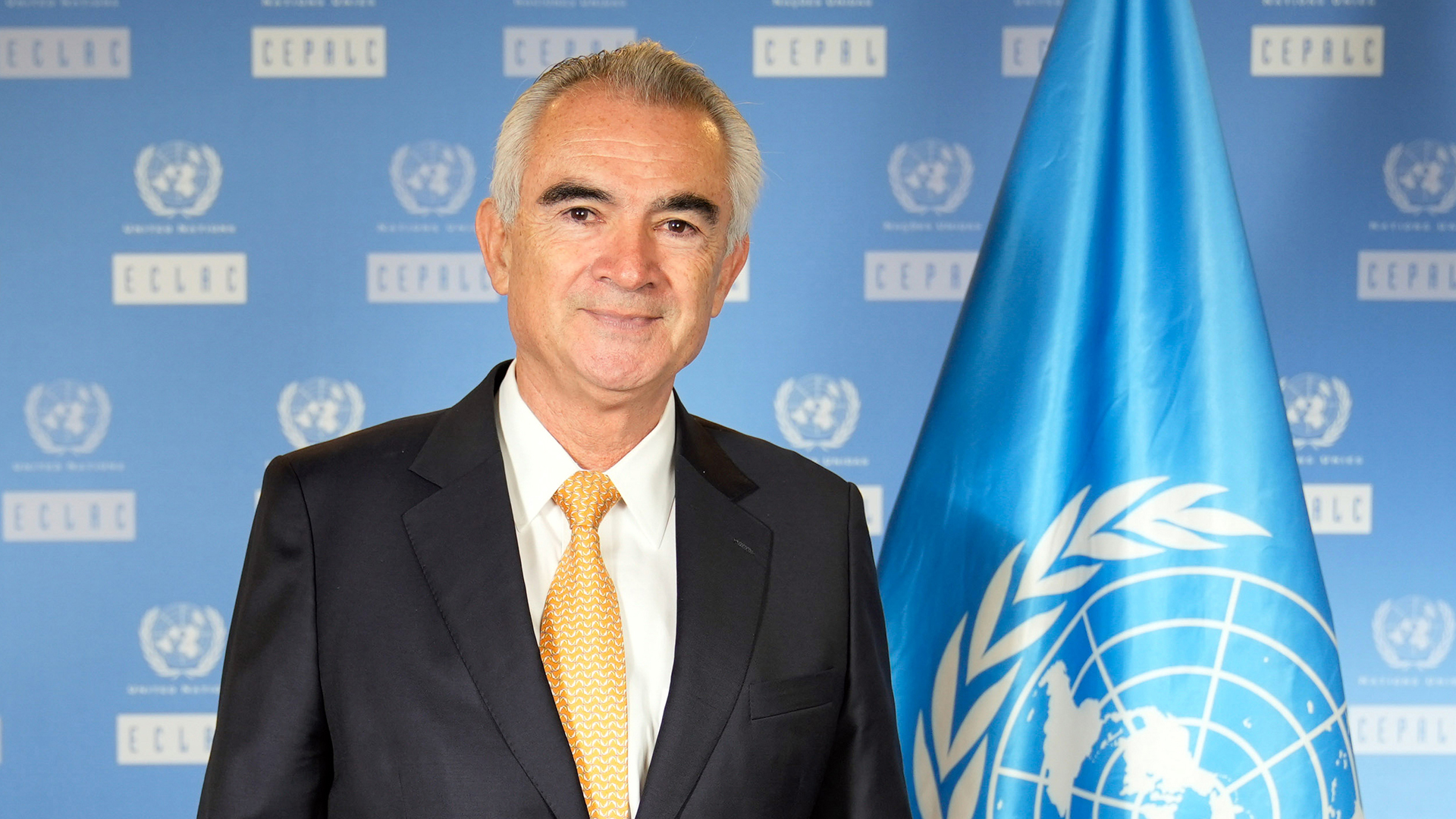José Manuel Salazar-Xirinachs Takes Office as the New Executive Secretary of ECLAC
The Costa Rican economist was appointed to the position by the UN Secretary-General, who highlighted his interest and passion for the analysis, design, implementation and evaluation of policies to promote development.

Economist José Manuel Salazar-Xirinachs, of Costa Rica, took office today as the new Executive Secretary of the Economic Commission for Latin America and the Caribbean (ECLAC), a position to which he was appointed on September 1, 2022 by the United Nations Secretary-General, António Guterres.
The former Regional Director for Latin America and the Caribbean of the International Labour Organization (ILO) between 2015 and 2018, José Manuel Salazar-Xirinachs holds a master’s degree in Development Economics and a doctorate in Economics from Cambridge University, along with a bachelor’s degree in Economics from the University of Costa Rica.
He joined the ILO in 2005 as Executive Director of its Employment Sector and served as Assistant Director General for Policy from 2013 to 2015. Prior to joining the ILO, he served from 1998 to 2005 as Director of the Trade Unit of the Organization of American States (OAS).
“A public policy and economic development enthusiast, Mr. Salazar brings to the position deep development knowledge and a life-long interest and passion for the analysis, design, implementation and evaluation of policies to promote economic, social and political development,” António Guterres stated upon announcing his appointment.
The new Executive Secretary of ECLAC was Minister of Foreign Trade of Costa Rica from 1997 to 1998, Executive President of the Costa Rican Development Corporation from 1988 to 1990 and Chief Economist and then Executive Director of a Central American private-sector think tank (FEDEPRICAP) from 1990 to 1996.
In the academic sphere, he is the author of numerous publications on development, trade, productive transformation, competitiveness and employment policies, and he has written and edited several books. He has taught at the University of Costa Rica, the National University of Heredia, Cambridge University and Georgetown University.
At ECLAC, José Manuel Salazar-Xirinachs succeeds diplomat Alicia Bárcena Ibarra, of Mexico, who concluded her mandate on March 31 after nearly 14 years at the helm of the regional commission.
About ECLAC
The Economic Commission for Latin America and the Caribbean (ECLAC), one of the five regional commissions of the United Nations, was created on February 25, 1948 to contribute to the economic development of Latin America and reinforce economic ties among the region’s countries and with other nations of the world. Its work was later expanded to include the countries of the Caribbean and to incorporate the objective of promoting social development.
ECLAC’s members include the 33 countries of Latin America and the Caribbean, along with some nations from North America, Europe and Asia that have historical, economic and cultural ties to the region. In total, there are 46 Member States and 14 associate members, a legal status agreed upon for some non-independent territories in the Caribbean.
Related link(s)
Country(ies)
Contact
Public Information Unit
- prensa@cepal.org
- (56 2) 2210 2040